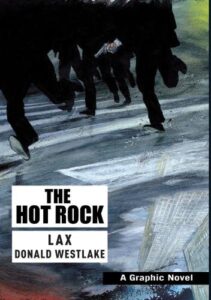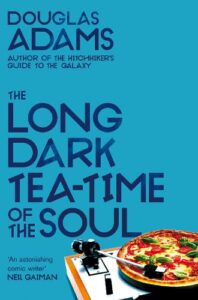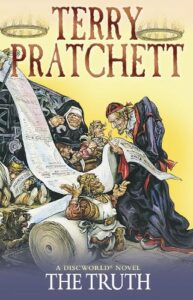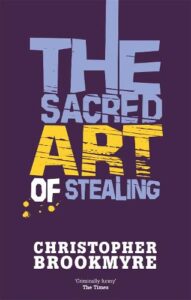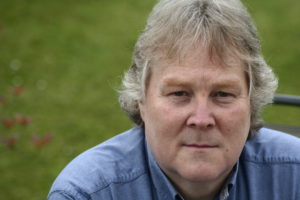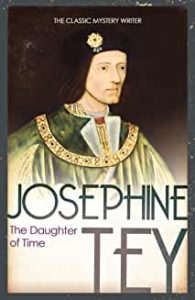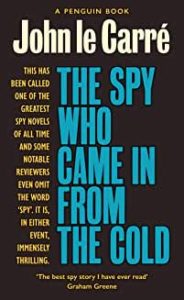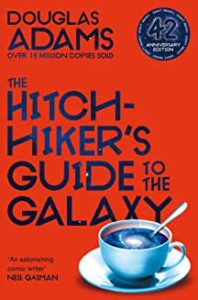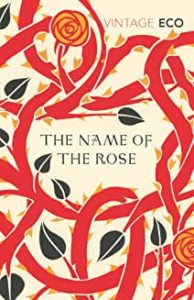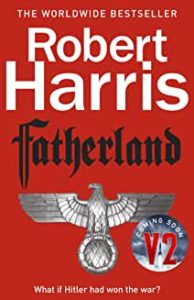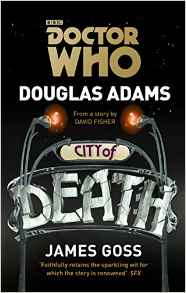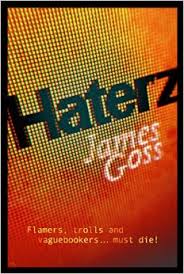Decades: Compiling the Ultimate Library with Adam Maxwell
I am assembling the Ultimate Library. I began this project back in January 2021 and the plan is to curate the best collection of books for readers. I only want the Library to feature the “best” reading sections, books that someone loves and would recommend any library visitor should read.
I could not possibly do this alone so I invite guests to join me and ai ask them to nominate which books get added to the Library shelves. I refer to my Library as the Decades Library and that’s because of the two rules I ask my guests to follow when making their selections:
1 – Choose ANY five books
2 – You can only select one book per decade from five consecutive decades
Sounds simple – until you try to make your own selections, finding five books from five consecutive decades does cause some angst apparently.
Now we know why we are here it’s time to pass control over to my guest curator – Adam Maxwell. I’m a huge fan of Adam’s Kilchester novels, good heist stories seem so rare these days but he’s delivering some belters – check out The Dali Deception and you’ll see what I mean.
Over to Adam…
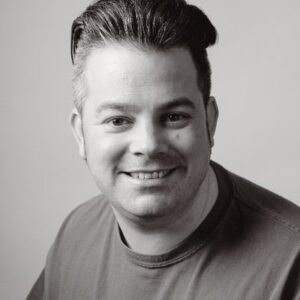 What can you say about Adam Maxwell that he hasn’t already said about himself?
What can you say about Adam Maxwell that he hasn’t already said about himself?
Crime writer – certainly.
Idiot – without doubt.
Genius – unlikely.
Liar – absolutely.
Having written is a variety of genres in the murky past, the days he dedicates himself to writing crime-comedy in his Kilchester series of books. Set in a fictional city in the North of England, Kilchester is a wretched hive of scum and villainy, the denizens of which he’ll have you cheering for by the end of the books…
Described variously as ‘Oceans 11 meets Lock, Stock & 2 Smoking Barrels… in book form’, ‘Glorious fun’ ‘If Hunter S Thompson wrote an Ealing comedy’ and ‘Joyous’ (the latter by the owner of this very blog). In Kilchester, Maxwell creates a fast-paced, darkly funny & effortlessly cool series of heist thrillers that you won’t be able to put down.
According to his LinkedIn profile Adam previously worked as a Private Detective and has spent many years hiding from the consequences of his actions in the wilds of Northumberland where he now lives with his wife and daughter.
If you want to find out more about him:
Amazon is a good place to start https://www.amazon.co.uk/Adam-Maxwell/e/B00EUAZN2Q
Or you can check out his website and get yourself a free ebook https://adammaxwell.com/
DECADES
Can I just start by saying aaaargh! Choosing books for Decades was a seemingly simple task that quickly descended into being dangerous overthunk by yours truly. I nearly started in the 1930’s just to ensure I could get Code of the Woosters by P.G. Wodehouse. But that meant I would have missed out on too many others so… a balance was struck. And that balance starts in the decade of my birth.
The Hot Rock – Donald Westlake
Crime and comedy. In the cinema audiences can’t get enough. In the book world… it’s readers who can’t get enough. Since it’s the genre I write in, it felt appropriate to include some of the cream of the crop of humorous crime and The Hot Rock doesn’t disappoint.
After Dortmunder is released from prison with nothing but ten dollars to his name he quickly becomes embroiled in a plan to steal a priceless emerald. The book somehow manages to achieve a perfect balance between hard-boiled and farce and, reader, that is no mean feat. As talented as the crew are, they just can’t seem to keep the damned rock in their dishonest mits without their plans unravelling in front of their eyes.
The book spawned a slew of sequels and was adapted for the big screen by none other than William Goldman in an adaptation that starred Robert Redford.
The Long Dark Tea-Time of the Soul – Douglas Adams
Douglas Adams is remembered by most as having written the clatteringly marvellous ‘Hitchhikers Guide To The Galaxy’. This is not that book.
Featuring ‘holistic private detective’ Dirk Gently, this series inadvertently convinced me that not only was it possible to meld comedy and crime fiction but to make it a work of utter genius. The genius part is something I have yet to achieve but… crime and comedy… tick!
The story whirls around Thor (not the Marvel one), a supernatural deal with a green bug-eyed monster with a scythe, a Coca-Cola vending machine and a very, very angry eagle.
To say more would ruin it but if you’ve not dipped your reading toe into Adams’ Dirk Gently series then you really should remedy that. Quickly.
1990s
Get Shorty – Elmore Leonard
No… not the movie based on it with Danny DeVito. Not the TV show either… This is a library and we have no space for such frivolities.
Another hugely influential author for me, Elmore Leonard is the King of Criminals like Agatha Christie is the Queen of Crime. Only American. And more modern. Never mind, that’s a rubbish comparison. What was I talking about?
Yes! Elmore Leonard more often than not makes the criminal the protagonist and has you rooting for the bad guys from the outset. Get Shorty features Chili Palmer, a small-time loan shark from Miami who finds himself in Los Angeles. He soon comes to realise that the movie business is very much like the loan-sharking business and decides he wants a piece of the action.
The result is a laugh-out-loud explosion of petulant stars, terrified producers and drug deals gone bad all told with Leonard’s laconic style.
The Truth – Terry Pratchett
‘A lie can run around the world quicker than the truth can get its boots on…’
Any writer who puts humour in their books aspires to be as good as Terry Pratchett. And we all fail to be as good as he was. The Truth is the 25th Discworld novel and a standalone making it all the more accessible.
It charts the Discworld’s first newspaper’s rise and fall and lights a fire in your belly about the importance of a free press while mixing it up with threats to life, a recovering vampire’s suicidal fascination for flash photography and a man who keeps begging the editor to publish pictures of his humorously-shaped potatoes.
One of the hardest things about choosing books for Decades is balancing which book from which decade but with Pratchett’s writing spanning four decades it was more ‘which Pratchett decade am I in love with currently?’
The Sacred Art of Stealing – Chris Brookmyre
I’ve talked about funny/crime books quite a bit so far but frankly, the biggest crime here is that no-one has chosen one of Chris Brookmyre’s books in any Decades selection so far. It is my utter pleasure to remedy that.
The Sacred Art of Stealing feels in the tradition of Elmore Leonard’s Out Of Sight as it features a burgeoning romance between a thief and a police officer. Brookmyre’s take on the situation is all his own and the black humour that courses through the novel’s veins balances perfectly with the violence while nodding to more literary fare along the way.
Since writing this I’ve discovered that The Sacred Art of Stealing was actually published in 2003… it was the audiobook that appeared in 2013 but such is my belief that it should be included in the Decades library that I will personally kill anyone who disagrees with my inclusion of this phenomenal tome*
*Killing will likely be in print rather than in person. Apologies to the suicidal, deranged and/or violent readers out there.
Pratchett and Douglas Adams in a single week with the added joy of Elmore Leonard and Chris Brookmyre – what a cracking mix! Huge thanks to Adam for making time to pick his five Decades selections.
